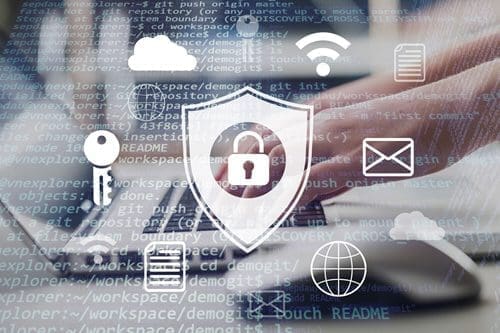Protect Your Digital Footprint
I don't need to tell you our online presence is more vulnerable today than ever. Your knowledge of this fact has brought you to this article. Now you want to learn more about a VPN, how it works, how it will protect you, and how complicated it is. You may also wonder if it will interfere with your other services or security. So keep reading as we attempt to answer your questions.
Using a VPN is about protecting our digital footprint. Whether browsing the internet, accessing public Wi-Fi, or engaging in online transactions, our digital footprints are constantly at risk of being tracked, monitored, or hacked. A Virtual Private Network (VPN) acts as a shield, protecting your online activities by encrypting your connection and masking your IP address. But the benefits of using a VPN go beyond just security. You can bypass geographical restrictions, access blocked content, and save money on online purchases using a VPN.

Understanding the Importance of Online Privacy
To help better understand your risk with online activity, I want to point out that the risk begins with your ISP (Internet Service Provider). This service can track your online activities and even sell your data to advertisers. Additionally, government agencies and cybercriminals can potentially monitor your online behavior, compromising your privacy and security.
A VPN encrypts your internet connection and ensures that your online activities remain private and secure, shielding you from prying eyes. You can then regain control over your digital footprint.
Moreover, online privacy is not just about protecting your personal information. It's also about preserving your freedom to access information and express your thoughts without censorship or restrictions. In some countries, governments impose strict internet regulations, blocking access to specific websites and online services. Using a VPN, you can bypass these geographical restrictions regardless of location.
What is a VPN, and How Does it Work?
With a better understanding of the importance of online privacy, let's dive into what a VPN is and how it works.
A VPN, or Virtual Private Network, is a technology that establishes a secure and encrypted connection between your device and the internet. When you connect to a VPN server, your internet traffic is encrypted, ensuring that any data transmitted between your device and the websites you visit is protected from eavesdropping or interception.
To achieve this, a VPN creates a secure tunnel between your device and the VPN server. All your internet traffic passes through this tunnel, making it nearly impossible for anyone to intercept or decipher your data. Additionally, a VPN masks your IP address, replacing it with the IP address of the VPN server you're connected to. This helps to anonymize your online activities, making it difficult for anyone to trace your internet usage back to you.
As a clue that the VPN works, I often receive an email notice of suspicious activity after logging onto one of my regular online accounts. Since my connection was not recognized, it was registered as suspicious.
The Benefits of Using a VPN
Using a VPN offers a wide range of benefits beyond just privacy and security. We have touched on a couple of these already, but let's explore them further in addition to other advantages of incorporating a VPN into your digital routine:
- Enhanced Security and Privacy
- As mentioned earlier, the primary benefit of using a VPN is enhancing your online security and privacy. By encrypting your internet connection and masking your IP address, a VPN ensures that your online activities are protected from hackers, identity thieves, and other malicious entities. Whether you're accessing your online banking, shopping on e-commerce websites, or browsing the web, a VPN adds an extra layer of security to safeguard your sensitive information and personal data.
- Bypass Geographical Restrictions
- Have you ever encountered a message that says, “This content is not available in your country”? Geographical restrictions can be frustrating, especially when accessing your region's streaming platforms, social media, or websites blocked. You can bypass these restrictions with a VPN by connecting to a server in a different country. By doing so, you can make it appear as if you're browsing from that specific country, enabling you to access content that would otherwise be unavailable.
- Access Blocked Content and Websites
- In addition to bypassing geographical restrictions, a VPN can grant you access to blocked websites and content. Some workplaces, schools, or public Wi-Fi networks impose restrictions on certain websites, social media platforms, or online services. Using a VPN, you can circumvent these restrictions and regain access to the sites or services you need. This can be particularly useful for students trying to access educational resources or professionals needing to access work-related platforms while on the go.
- Secure Public Wi-Fi Connections
- Public Wi-Fi networks, such as coffee shops, airports, or hotels, are notorious for lacking security. These networks are often unencrypted, meaning anyone connected to the same network can potentially intercept your internet traffic and capture sensitive information like passwords or credit card details. Using a VPN, you can secure your connection and protect yourself from threats lurking on public Wi-Fi networks. A VPN encrypts your data, making it unreadable to anyone attempting to intercept it, ensuring your privacy and security even on unsecured networks.



